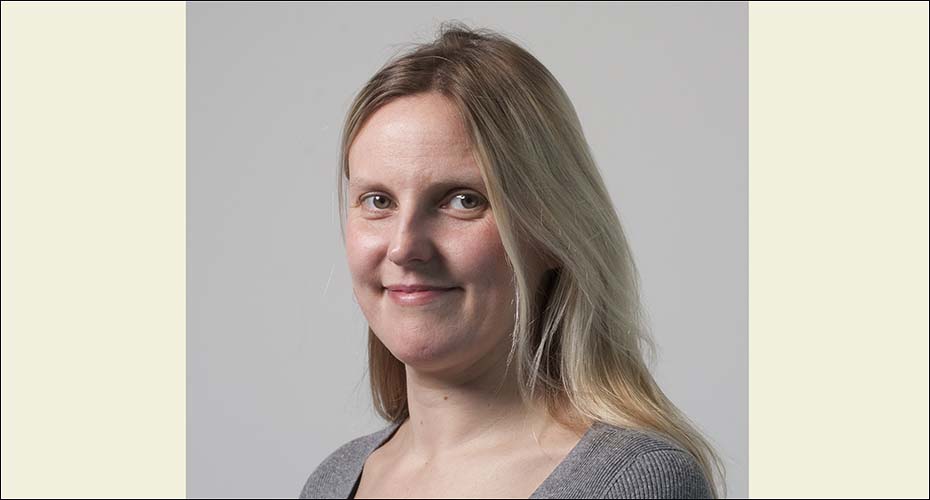Masters applications for 2023 entry are now closed.
Applications for September 2024 will open on Monday 25 September. Applications are now open for programmes with a January 2024 start. View our programmes »
| UCAS code |
1234 |
| Duration |
1 year full time
2 or 3 years part time |
| Entry year |
2024 |
| Campus |
St Luke's Campus
|
| Discipline |
Healthcare and Medicine
|
| Contact |
|
| UCAS code |
1234 |
| Duration |
Over 2 years |
| Entry year |
2024 |
| Campus |
St Luke's Campus
|
| Discipline |
Healthcare and Medicine
|
| Contact |
|
| UCAS code |
1234 |
| Duration |
Over 1 year |
| Entry year |
2024 |
| Campus |
St Luke's Campus
|
| Discipline |
Healthcare and Medicine
|
| Contact |
|
Overview
- Develop the skills and knowledge needed to enact meaningful change as an effective and confident healthcare practitioner.
- Designed for health researchers, academic clinical fellows, nurses, midwives, allied healthcare professionals and public health professionals.
- Also suitable for new graduates seeking a comprehensive grounding in health services research methods to develop your career as a health researcher.
- Study topics such as patient and public involvement, collaborative working, evidence-based practice, complex interventions, health economics, clinical trials and medical statistics.
- Taught by leading international experts and authors in complex interventions research methods.
Play a vital role in making health services better. Constant changes in healthcare means that highly skilled researchers are in-demand for developing, testing, evaluating and implementing evidence-based healthcare in highly complex situations.
By studying MSc Health Research Methods, you could help solve important problems to deliver better, safer and more accessible healthcare to the population.
Previous topics that students have chosen for independent study include:
- Exploring facilitators and barriers of patients’ trust in clinical pharmacists in Primary Care.
- Improving the physical health monitoring of patients taking Clozepine.
- Intravenous antimicrobial therapy in the home.
- Effectiveness of group psychological interventions in reducing the burden for caregivers of patients with dementia residing in the community.
Top 10 in the UK for our world-leading and internationally excellent Clinical Medicine research
Our Public Health research is 11th in the UK for Research Power
Major capital investment in new buildings and state-of-the-art facilities
Vibrant and active research student community supported by excellent pastoral and academic staff
Entry requirements
Normally a minimum 2.2 Honours degree (or equivalent) in a relevant discipline. Relevant clinical or professional experience may be taken into consideration as evidence of equivalency. A personal statement, detailing your reasons for seeking to undertake this subject, will be required.
Please visit our entry requirements section for equivalencies from your country and further information on English language requirements.
Please visit our international equivalency pages to enable you to see if your existing academic qualifications meet our entry requirements.
International students are normally subject to visa regulations which prevent part-time study. It is recommended that international students apply for the level of the final award you intend to complete i.e. PGCert, PGDip or Masters, due to the associated cost and requirements for a Tier 4 student Visa.
Accreditation of prior learning for Masters courses in Healthcare and Medicine
Accreditation of Prior Learning (APL) is a process whereby students, who have already gained relevant skills and knowledge prior to the start of their course, may be granted a partial credit exemption from their programme instead of unnecessarily repeating work. Find out more about APL.
Entry requirements for international students
Please visit our entry requirements section for equivalencies from your country and further information on English language requirements.
Read more
Entry requirements for international students
English language requirements
International students need to show they have the required level of English language to study this course. The required test scores for this course fall under Profile B2. Please visit our English language requirements page to view the required test scores and equivalencies from your country.
Course content
The programme is divided into units of study called ‘modules’ which are assigned a number of ‘credits’. The credit rating of a module is proportional to the total workload, with one credit being nominally equivalent to 10 hours of work, a 15 credit module being equivalent to 150 hours of work and a full Masters degree being equivalent to approximately 1,800 hours of work. Therefore, for applicants who are working full time (or close to full-time), we recommend applying to complete the Masters degree over 2 or 3 years rather than 1 year.
To gain a Masters qualification, you will need to complete 180 credits at level 7.
It is also possible to exit with a PGCert after completing 60 credits of taught modules or a PGDip after completing 120 credits of taught modules. The list of modules below shows which are compulsory.
Contact days
Health Research Methods timetable 2023/24
(Please note: timetables are draft and subject to change)
The last contact day and assessment deadline for the programme will be earlier than the actual end date of your registration with the University, to allow a period of time at the end of your active studies for further support and mitigation, if needed.
The modules we outline here provide examples of what you can expect to learn on this degree course based on recent academic teaching. The precise modules available to you in future years may vary depending on staff availability and research interests, new topics of study, timetabling and student demand.
Fees
2024/25 entry
UK fees per year:
- MSc : £11,600 full-time, £5,800pa part-time 2 years, £3,900pa part-time 3 years
- PgDip: £3,900pa part-time 2 years
- PgCert: £3,900
Standalone module fees: UK: £1,100 per 15-credit module
International fees per year:
- MSc: £27,500 full-time, £13,750pa part-time 2 years, £9,250 pa part-time 3 years
- PgDip: £9,250pa part-time 2 years
- PgCert: £9,250
Standalone module fees: International: £2,500 per 15-credit module
Find out more about tuition fees and funding
Fee information
Fees can normally be paid by two termly instalments and may be paid online. You will also be required to pay a tuition fee deposit to secure your offer of a place, unless you qualify for exemption. For further information about paying fees see our Student Fees pages.
Scholarships
We invest heavily in scholarships for talented prospective Masters students. This includes over £5 million in scholarships for international students, such as our Global Excellence Scholarships*.
For more information on scholarships, please visit our scholarships and bursaries page.
*Selected programmes only. Please see the Terms and Conditions for each scheme for further details.
Funding and scholarships
UK government postgraduate loan scheme
Postgraduate loans of up to £12,167 are now available for Masters degrees. Find out more about eligibility and how to apply.
Scholarships
There are various funding opportunities available including the Medical School's Global excellence scholarships for international fee paying students. For more information visit our Masters funding page.
Pro Vice Chancellor's NHS Postgraduate Scholarship
The Faculty of Health and Life Sciences is delighted to offer the Pro Vice Chancellor's NHS Postgraduate Scholarship of £5000 to up to four NHS staff who accept a place to study on one of our Masters programmes. Please check your eligibility before applying.
University of Exeter Class of 2022 Progression Scholarship
We are pleased to offer graduating University of Exeter students completing their degree in Summer 2022 and progressing direct to a standalone taught Masters degree (eg MA; MSc; MRes; MFA) or research degree (eg MPhil/PhD) with us a scholarship towards the cost of their tuition fees. These awards are worth 10% of the first year tuition fee for students enrolling on a postgraduate taught or research programme of study in 2022/23, with the exception of the PGCE programme. Find out more
Read more
Teaching and research
Our purpose is to deliver transformative education that will help tackle health challenges of national and global importance.
The taught component of this programme is delivered in the first two terms (one year programme) or five terms (two year programme). During this time you’ll also be helped to develop a dissertation project to be completed in the remaining six months.
Teaching and learning methods
All material is designed for Masters-level and will involve keynote lectures, case studies, seminars and group discussion. Within modules there is considerable scope for you to direct your learning towards fields of particular interest, especially through your choice of dissertation project and in your guided independent study.
Assessment
Short assessments are tailored to each module, with some assessment taking place in class, and others requiring electronic submission of assignments towards the end of a module.
Advice and support
One-to-one tutorials with module leads are timetabled into each of the four taught modules to ensure that you’ll receive personalised support. The Programme Lead is also available to help you with further guidance and advice.

Associate Professor Rob Anderson
Professor of Health Services and Implementation Research

Dr Julia Frost
Senior Lecturer Health Services Research

Rebecca Whear
Co-lead for the module "Systematic Reviews for Policy and Practice"
Associate Professor Rob Anderson
Professor of Health Services and Implementation Research
Rob is module co-lead for the core module Fundamentals of Research Design. He is an applied health services researcher and implementation scientist with a particular interest in the evaluation and synthesis of evidence about health policies and complex health interventions, such as public health programmes and changes in service organisation and delivery.
He has over 20 years' experience as a health services researcher, economic evaluator, and implementation science scholar in both the UK NHS and the Australian health system.
Dr Julia Frost
Senior Lecturer Health Services Research
Julia has been a medical sociologist since 1999. She is a Senior Lecturer in Health Services Research in the Third Gap research group. She undertakes research about health service delivery and patient experience, using qualitative and mixed methods. She is module lead for Qualitative Methods and Process Evaluations and co-leads on Fundamentals of Research Design.
She is currently qualitative lead on two NIHR funded studies: SAMUEL: Use of simulation and machine learning to identify key levers for maximising the disability benefit of intravenous thrombolysis in acute stroke pathways; and PARTNERS2: collaborative care for people with severe mental illness.
Profile page
Rebecca Whear
Co-lead for the module "Systematic Reviews for Policy and Practice"
Rebecca is a Research Fellow and co-lead for the module: Systematic Reviews for Policy and Practice. She has many years of experience in social and health related research. Latterly, she has mainly focused on systematic reviews but in the past has been involved with small pieces of quantitative and qualitative primary research.
Her main areas of interest include improving healthcare for patients and the NHS, the mental health and behaviour of young people, and dementia and dementia care.
Profile page
Careers
This programme is designed for a wide range of participants. It will enable health professionals from a variety of disciplines to gain expertise and become a more effective and confident practitioner. It is suitable for health researchers, academic clinical fellows, nurses, midwives, allied healthcare professionals and public health professionals. It is also suitable for new graduates (e.g. Medical Science, Psychology, Sociology, Geography) who wish to gain a comprehensive grounding in health services research methods as a platform for developing a career as a health researcher.
Careers support
All University of Exeter students have access to Career Zone, where you’ll gain access to our wealth of business contacts, support and training as well as the opportunity to meet potential employers at our regular Careers Fairs.















